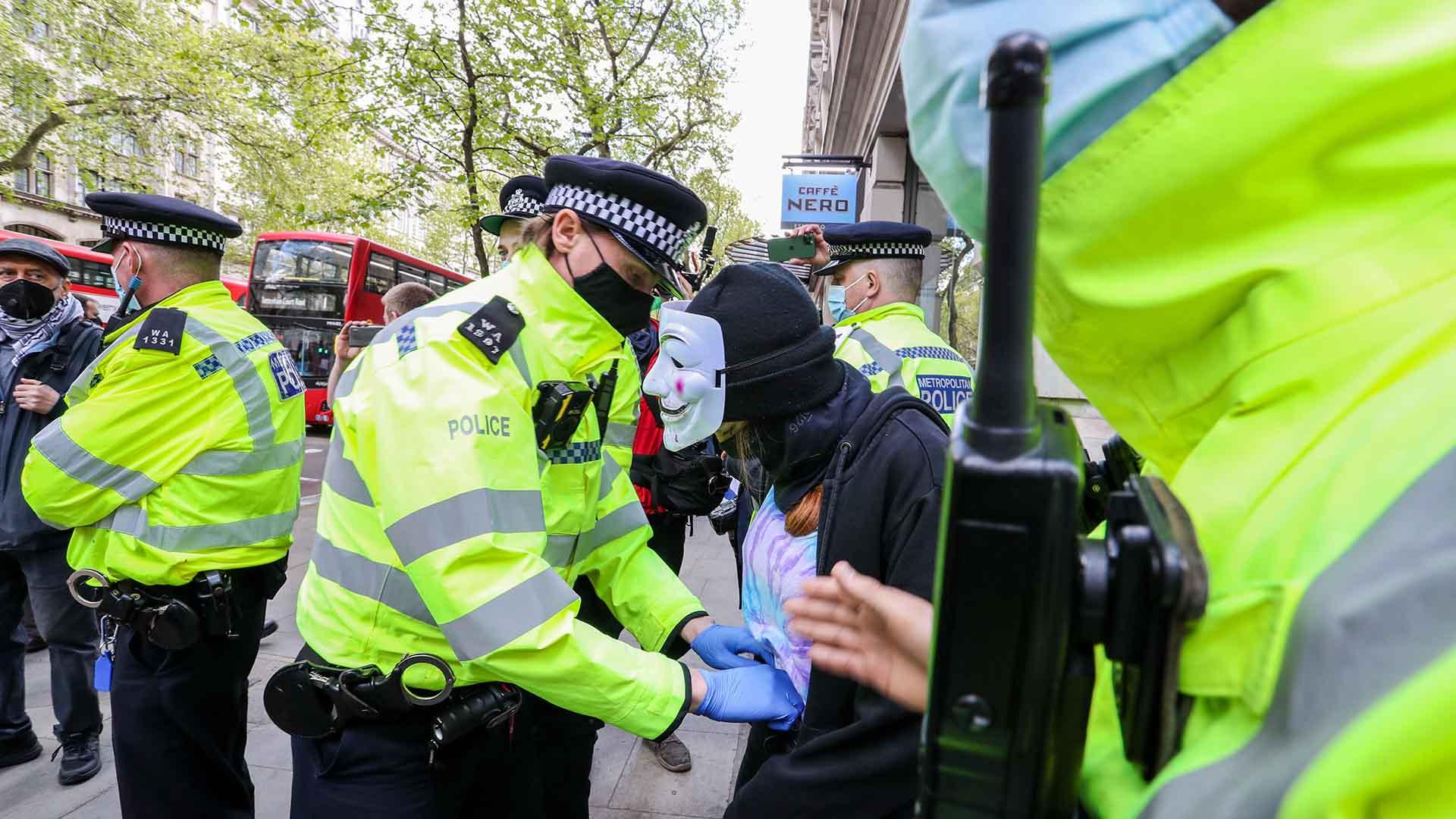Met Police boss Sir Mark Rowley says stop and search can cost trust
- Published
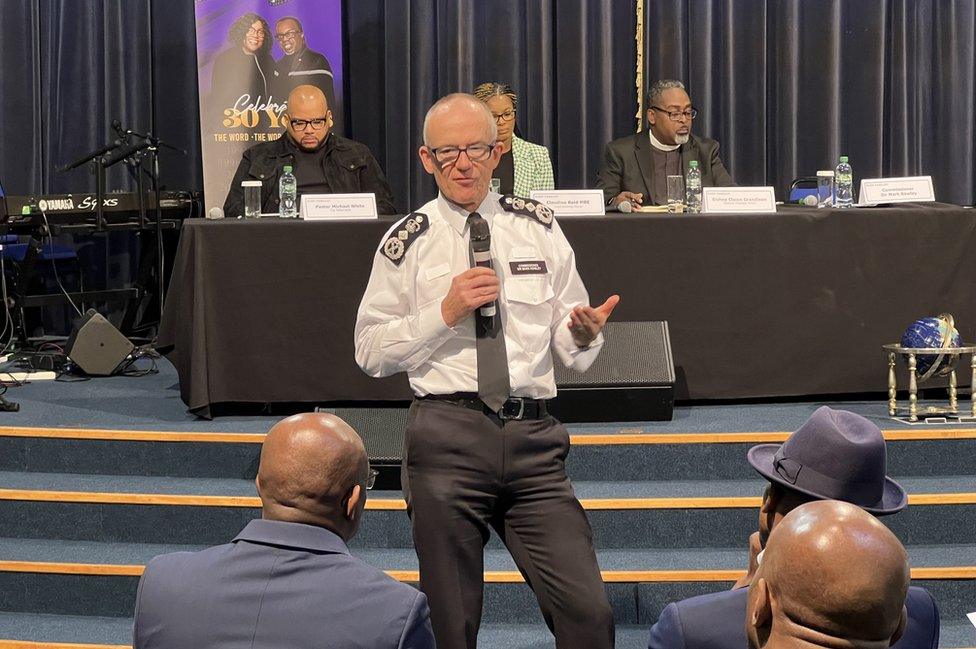
Sir Mark Rowley spoke at an event in Brixton
Stop and search in its present form "burns through trust", the Met Police commissioner has told a group of community leaders in south London.
Speaking at Ruach City Church, Brixton, Sir Mark Rowley also admitted the relationship with black communities was "amongst the worst, if not the worst".
Officers can carry out checks if they have "reasonable grounds" to suspect someone is carrying weapons or drugs.
Sir Mark said: "It has a value but it also has a cost if done badly."
He added: "As police, we spend a lot of time talking about operational value but we don't talk enough about the cost on trust.
"I've commissioned some work to start to look at how could we be more precise in how we deploy stop and search and how could we do it more in consultation with communities?
"It's [stop and search] valuable but we can't afford to do it as we do it today which just burns through trust."
Sir Mark previously said two or three officers a week would be in court on criminal charges as he roots out hundreds of corrupt officers thought to be serving.
Rachel-Yvonne McIntosh, a pastor in Forest Gate, east London, applauds the changes being made by the new commissioner who she describes as a "great man with a lot of integrity".
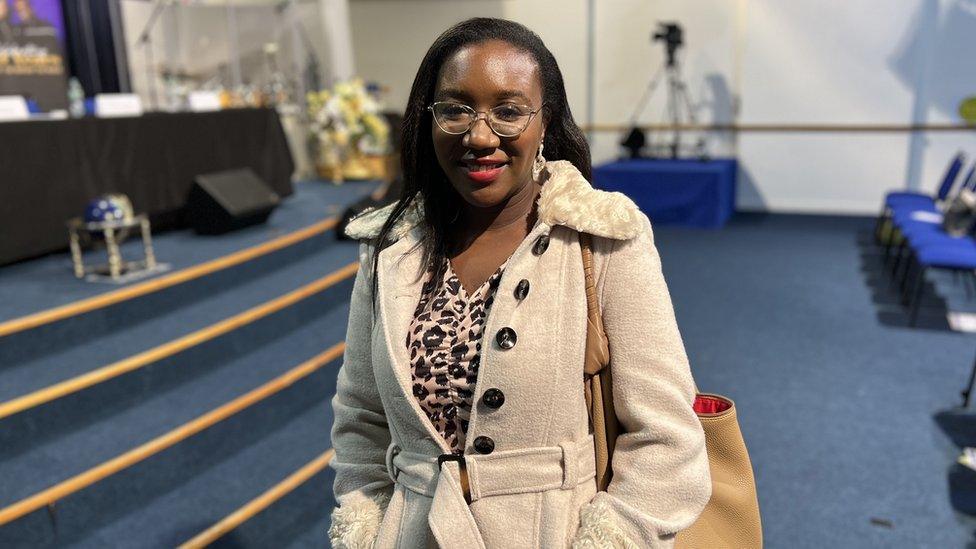
Rachel-Yvonne said the commissioner won over "a discerning group of people"
She said: "The main concern I have personally is the institutionalised issues that are in the movement, not just the vetting of the new people.
"It's that after you've been in the police force for a while your attitude will change to how everybody else thinks so how do we stop that from happening?
"Otherwise, in 20 years' time my children and my grandchildren will be having the same conversations we're having today."
On stop and search, she said: "We've never, ever done anything wrong but we've been stopped a few times and even now, if we see the police and they stop us, instantly the mood in the car is going to change as soon as the lights go on.
"Why is that? That shouldn't be happening. We should feel like when the police stop us, it's for safety or there's a particular issue and they want our opinion but automatically our backs are up and we shouldn't have that attitude at the moment."
Claion Grandison, of the New Testament Church of God and former bishop in Croydon, south London, agrees with the principle of stop and search but wants better training for officers.
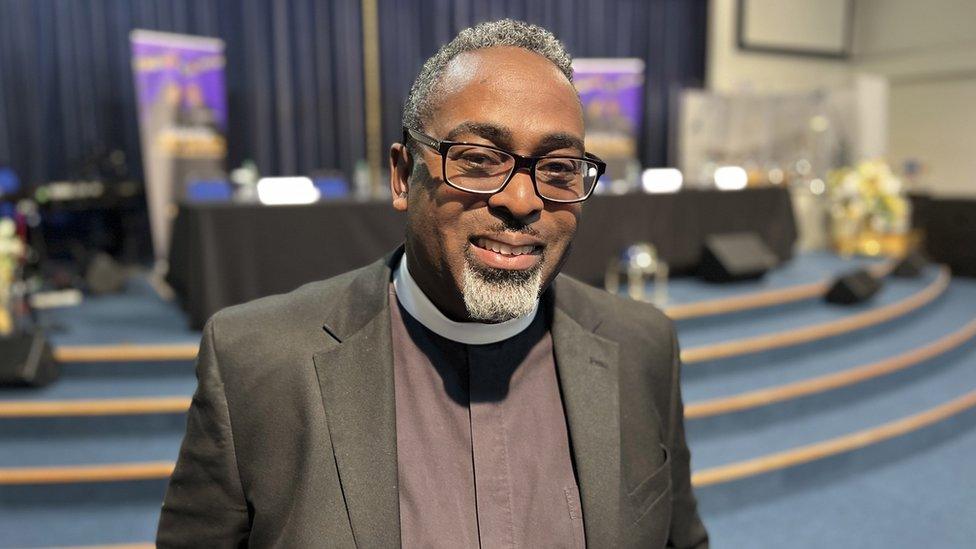
Claion wants the Sir Mark to see how officers will be held accountable
He said: "No child or young person should feel humiliated at the end of a stop and search. If it's a mistaken identity, there should be a level of courtesy that exists.
"If you are stopped consistently and there aren't necessarily any proper reasons for doing so... that shouldn't happen and I'm hoping that police officers will be a lot more sensitive to the individuals that they are engaging with.
"It starts with training and relationships."

Follow BBC London on Facebook, external, Twitter , externaland Instagram, external. Send your story ideas to hellobbclondon@bbc.co.uk, external
Related topics
- Published25 January 2023
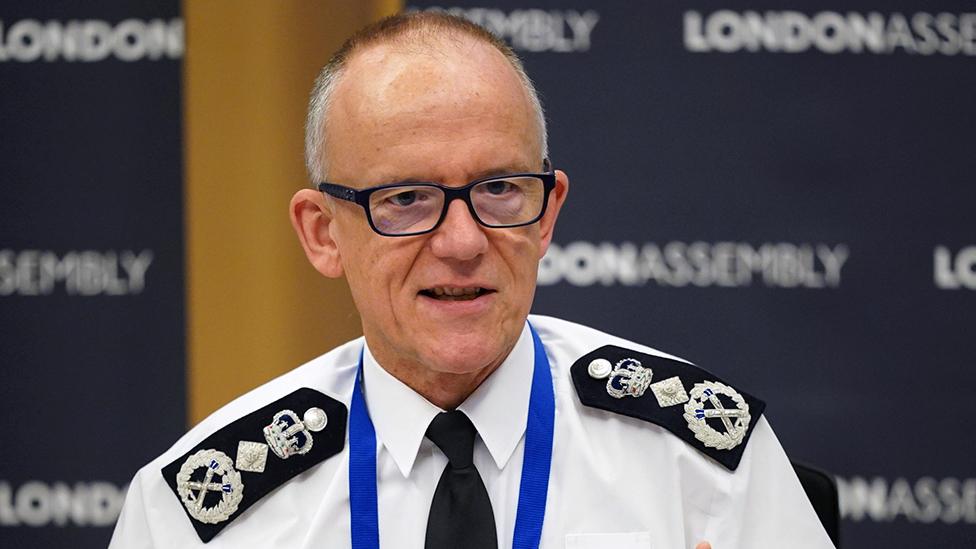
- Published30 October 2023
